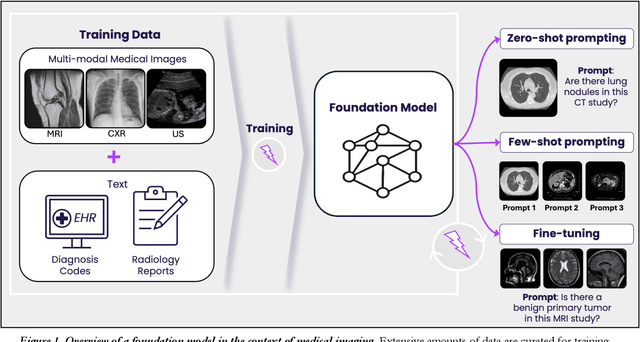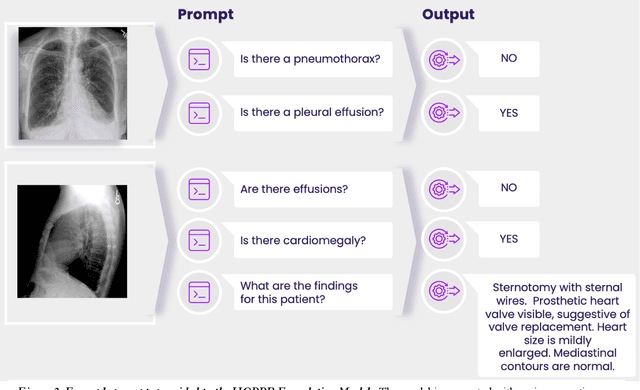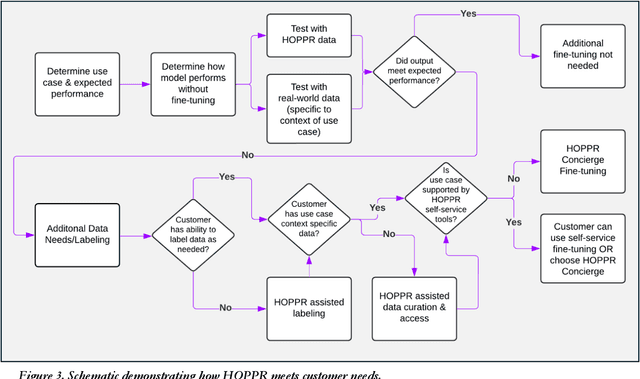Robert Bakos
HOPPR Medical-Grade Platform for Medical Imaging AI
Nov 26, 2024


Abstract:Technological advances in artificial intelligence (AI) have enabled the development of large vision language models (LVLMs) that are trained on millions of paired image and text samples. Subsequent research efforts have demonstrated great potential of LVLMs to achieve high performance in medical imaging use cases (e.g., radiology report generation), but there remain barriers that hinder the ability to deploy these solutions broadly. These include the cost of extensive computational requirements for developing large scale models, expertise in the development of sophisticated AI models, and the difficulty in accessing substantially large, high-quality datasets that adequately represent the population in which the LVLM solution is to be deployed. The HOPPR Medical-Grade Platform addresses these barriers by providing powerful computational infrastructure, a suite of foundation models on top of which developers can fine-tune for their specific use cases, and a robust quality management system that sets a standard for evaluating fine-tuned models for deployment in clinical settings. The HOPPR Platform has access to millions of imaging studies and text reports sourced from hundreds of imaging centers from diverse populations to pretrain foundation models and enable use case-specific cohorts for fine-tuning. All data are deidentified and securely stored for HIPAA compliance. Additionally, developers can securely host models on the HOPPR platform and access them via an API to make inferences using these models within established clinical workflows. With the Medical-Grade Platform, HOPPR's mission is to expedite the deployment of LVLM solutions for medical imaging and ultimately optimize radiologist's workflows and meet the growing demands of the field.
 Add to Chrome
Add to Chrome Add to Firefox
Add to Firefox Add to Edge
Add to Edge